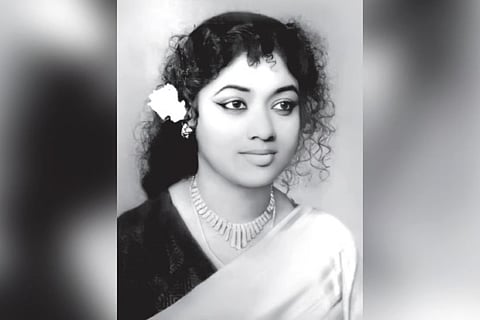
- LIFESTYLE
- FASHION
- FOOD
- ENTERTAINMENT
- EVENTS
- CULTURE
- VIDEOS
- WEB STORIES
- GALLERIES
- GADGETS
- CAR & BIKE
- SOCIETY
- TRAVEL
- NORTH EAST
- INDULGE CONNECT

Ponnarival Ambiliyil and Balikudeerangale to Chakkara Panthalil and Pambukalkku Malamundu and many more songs from the past still remain on the lips of every Malayali. These tunes from the 1950s to the 1980s, hold a special place in the hearts of many, evoking cherished memories of a bygone era, the golden age of theatre.
Though these songs became popular through movies, they were originally penned for dramas. And their influence extended beyond the idea of mere entertainment and went on to play a significant role in shaping the socio-political and cultural history of the state.
Prominent theatre groups such as Malabar Kala Samithi, Kerala People’s Arts Club (KPAC), Navasamskara Samithi and Kalavedi left an indelible mark on Kerala’s cultural landscape. Their contributions were bolstered by talents such as Thoppil Bhasi, P J Antony, S L Puram Sadanandan, K S Rajamani, Poojappura Krishnan Nair, Adoor Bhasi and several others. Through their writings, together, they crafted art that talks about social commentary and political consciousness.
And one of the names etched on the list of Kerala’s theatre luminaries is KPAC Sulochana. Her life and artistry are the subject of the book Jeevitha Nadakam Arunabham Oru Nadaka Kalam by author Baiju Chandran. The book was part of discussion at a commemorative event honouring KPAC Sulochana at Bharat Bhavan in the capital in the presence of personalities such as actor KPAC Leela and filmmaker Shyamaprasad.
Sulochana, the playback singer and the actor engaged audiences with her unforgettable performances for around four decades. She acted and sang in 10 plays, including the unforgettable, Ningalenne Communistakki and Manvantaram, both etched in the socio-cultural pages of Kerala in golden letters. Her association with KPAC also played an important role in the rise of the Communist party in 1957.
Jeevitha Nadakam Arunabham Oru Nadaka Kalam, serves as a reflection of this progressive theatre movement in Kerala, says Baiju. “I am exploring the eventful period of the theatre through her biography,” he says.
The rebellion movement of the time commenced with influential dramas such as Adukkalayil Ninnu Arangathekku by V T Bhattathiripad, Rithumathi by M P Bhattathirippad, Ith Bhoomiyaanu by K T Mohammed’s, Inquilabinte Makkal by P J Antony and culminating in Ningalenne Communistakki by Thoppil Bhasi. “Thoppil Bhasi’s Ningalenne Communistakki was initially banned by the Congress government . It was re-released after undergoing modifications,” informs Baiju.
“Let’s not forget the songs also played a significant role in the collective psyche of the time. People began singing these songs, and thereby connecting with the socialmovement,” explains Baiju. Sulochana’s contributions were instrumental. She stands as a representative figure of that era, Baiju concludes.